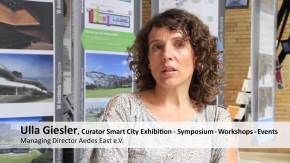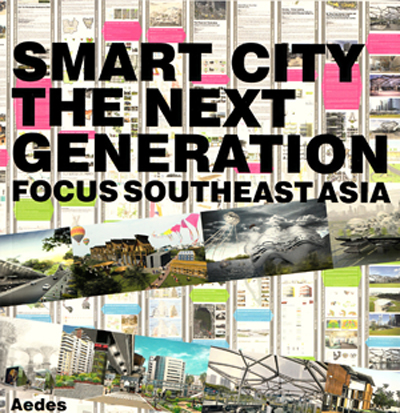Awarehouse Upgrading Factories and Employee Housing
Samutprakarn, Bangkok Metropolitain Area, Thailand
Archetype Cambodia Ltd., Phnom Penh, Cambodia / Julien Sellon
The Delegation of the European Union to the Kingdom of Cambodia Story of a Transformation
Phnom Penh, Cambodia
Architecture + Adaptation, Michigan, USA / Etienne Turpin, Meredith Miller, Farid Rakun
Design for Hypercomplexity: Research on Climate Change and Urban Poverty
Jakarta, Indonesia
Arkomjogja, Yogyakarta, Indonesia / Andrea Fitrianto
Bamboo Bridge Community-Driven Upgrading of an Urban Informal Settlement
Matina Crossing Community, Davao City, Philippines
Community Center Self-built Facility of an Informal Riverside Settlement made with Bamboo
Jatimulyo Community, Yogyakarta, Indonesia
Atelier Cosmas Gozali, Jakarta Selatan, Indonesia / Cosmas Damianus Gozali
New Jakarta Green Belt An Urban Planning Vision
Jakarta, Indonesia
Bandung Creative City Forum, Bandung, Indonesia / Tita Larasati, Fiki Satari
Helarfest 2012 Urban Acupuncture through Community Activation
Bandung, Indonesia
#Better Cities, Kuala Lumpur, Malaysia / Sze Ying Goh, Hardesh Singh
ReCar Rethinking Urban Mobility
Kuala Lumpur, Malaysia
Bina Nusantara University, Jakarta, Indonesia / Hardy Suanto, Tri Apriliana
Pluit Reservoir Restoration Biological Environment Restoration Project
Penjaringan, Jakarta, Indonesia
Budipradono Architects, Jakarta, Indonesia / Budi Pradono, in collaboration with BINUS University, & UNTAR University
Fluidscape City Urban Development for contemporary Reservoir City Project
Pluit, Penjaringan North Jakarta, Indonesia
CAt, Tokyo, Japan / Kazuhiro Kojima, Daisuke Sanuki, Vo Trong Nghia, Kojima Lab Tokyo University of Science
Ho Chi Minh City University of Architecture New Campus for an Architecture University
Ho Chi Minh City, Vietnam
Collective Studio, Phnom Penh, Cambodia / Giacomo Butte, Eva Lloyd, Sarah Bland
Tropical Urban Block An Integrated Planning Strategy
Phnom Penh, Cambodia
Eleena Jamil Architect, Kuala Lumpur, Malaysia / Eleena Jamil
HOME Units Low Income Housing for the Elderly
Singapore
ETH
Zurich Future Cities Laboratory, Singapore / Dirk E. Hebel, Felix
Heisel, Alireza Javadian, Marta Wisniewska, Tobias Wullschleger
Fiber Composite Reinforced Concrete – Bamboo as Alternative A Material Research
Tropical Zone World-Wide
ETH Zurich Future Cities Laboratory, Singapore / Max Hirsh
Low-Cost, Low-Tech: Budget Air Travel and the Future of Southeast Asian Cities Mobility Research
Bangkok, Batam, Cebu, Ho Chi Minh City, Johor Bahru, Kuala Lumpur, Phnom Penh, Singapore
ETH Zurich Future Cities Laboratory, Singapore / Stephen Cairns
Tropical Town Rubah Seeding Sustainable Urban Growth in Southeast Asia
Batam, Indonesia
Franken Architekten, Frankfurt, Germany / Bernhard Franken
U-Silk City Urban Design of 13 Residential High-Rise Towers with Mixed-Use Podium
Hanoi, Vietnam
HUBER SE, Berching, Germany / Nick Meeten
Ultrafiltration Wastewater Recycling System - Plaza IndonesiaWastewater Treatment Upgrade
Jakarta, Indonesia
Irwan Ahmett, Tita Salina, Artists, Jakarta, Indonesia
Urban Play Project
Jakarta, Indonesia
Kota Kita Foundation, Solo, Indonesia / John Taylor
Solo Kota Kita (Our City Solo) Improving Citizen Participation through Participatory Mapping and Neighbourhood Information
Solo, Indonesia
Lund University, Sweden / Manon Otto
Warning - Pollen Landing
Addition Hills, Mandaluyong, Metro Manila, Philippines
Mamostudio - Architecture and Landscape, Bogor, Indonesia / Adi Purnomo, David Hutama
Jakarta Sponge City A Water Research
Jakarta, Indonesia
OTP Akitek, Ipoh, Malaysia / June Chow, Zhilan Duan
Affordable Housing in Malay Village Redefining the Village as Part of the City
Ipoh, Malaysia
Palafox Associates, Makati City, Metro Manila, Philippines / Felino A. Palafox, Jr.
San Juan City Plan Reshaping San Juan City: Planning Towards a Future of Green Consciousness
San Juan City, Metro Manila, Philippines
Research
Institute for Humanity and Nature (RIHN), Universitas Indonesia, Chiba
University, Jakarta, Indonesia / Ellisa Evawani, Akiko Okabe
Alternative Helicopter: Ayun Ayun Kaliku Enhancing the Awareness of Endangered Pollute River
Kampung Cikini Kramat, Central Jakarta, Indonesia
Architecture + Adaptation, Michigan, USA / Etienne Turpin, Meredith Miller, Farid Rakun
Design for Hypercomplexity: Research on Climate Change and Urban Poverty
Jakarta, Indonesia
Research
Urbanism Architecture (RUA), WIT Architects and LATITUDE, Leuven,
Belgium, Southern Institute of Urban Planning (SIUP), Ho Chi Minh City /
Kelly Shannon, Bruno De Meulder, Guido Geenen
Cần Thơ Masterplan Revision to 2030
Can Tho, Mekong Delta, Vietnam
RT+Q Architects Pte Ltd, Singapore / Rene Tan, TK Quek, Eddie Gan, Joanne Goh
D7 & D6 Building Rethinking "Urbanism and the Office Prototype"
Kuala Lumpur, Malaysia
Rujak Center for Urban Studies, Jakarta, Indonesia / Elisa Sutanudjaja, Marco Kusumawijaya
Participatory Planning by Urban Poor in StrenKali Riverside
Surabaya, Indonesia
Shma Company Limited, Bangkok, Thailand / Prapan Napawongdee, Yossapon Boonsom
Vertical Green Alternative Green Area for High-Density Living
Integrated Park and Streetscape - Chulalongkorn University Centennial Park Resilient Park for an Overcrowded City
Bangkok, Thailand
Shelby Doyle, New York, USA
City of Water: Architecture, Infrastructure, and the Floods of Phnom Penh
Phnom Penh, Cambodia
Studio505, Melbourne, Australia / Dirk Zimmermann and Dylan Brady
In collaboration with CPG and HOK
Ng Teng Fong General Hospital and Jurong Community Hospital
Singapore
Tim Pajus, Medan, Indonesia / Rangga Mury
Pajak - Market Revitalization at the North Sumatera University
Medan, Sumatra, Indonesia
T Studio, Rome, Italy / Guendalina Salimei
Malearc, Berlin, Germany / Christiano Lepratti, Vera Martinez
Dao Viet Ecotown Design for the Urban Planning of a New City
Ha Long Bay, Vietnam
TYIN tegnestue, Trondheim, Norway / Andreas G. Gjertsen, Yashar Hanstad
Klong Toey Community Lantern and Old Market CommunityPublic Spaces built with Students and the Community
Bangkok, Thailand
University of Houston, Houston Texas, USA / Wiliam Truitt, Meredith Chavez
Adaptive Mekong: Phnom Penh Managing Water and City
Phnom Penh, Cambodia
Urban Voice, Phnom Penh, Cambodia / Nora Lindstrom
Urban Voice Cambodia
Phnom Penh, Cambodia
W Architects Pte Ltd, Singapore / Mok Wei Wei
Education Research Center University Town, National University of Singapore
Singapore
Wetlands Work! Ltd., Phnom Penh, Cambodia / Taber Hand, Irina Chakraborty
Urban Wetland Pissoir Design as Public Infrastructure
Phnom Penh, Cambodia
W.V. Coscolluela & Associates, Makati City, Metro Manila, Philippines / William V. Coscolluela
Zuellig Building First Green High-Rise
Makati City, Metro Manila, Philippines
Screening






